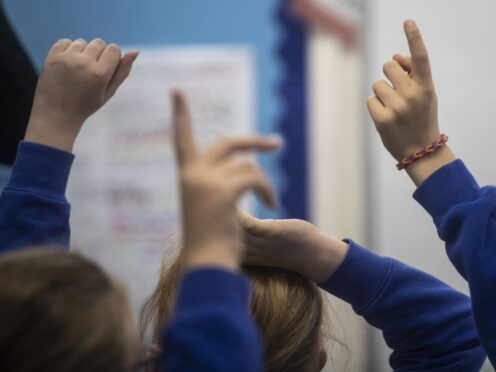
The majority of school staff believe there are not enough resources for children with special educational needs and disabilities, a survey suggests.
A poll, of over 8,000 National Education Union (NEU) teacher and support staff members in England and Wales, suggests that 41% said they had no access to counsellors or occupational health specialists to support children with special educational needs and disabilities (Send).
One in three respondents reported that there was no specialist behaviour support team to help Send pupils, while 28% said there was no speech and language therapist and 25% said there was no educational psychologist.
The findings were released on the second day of the NEU’s annual conference in Bournemouth.
NEU members were asked what provision they had access to at school or local authority level to support pupils with an Education, Health and Care Plan (EHCP), or who may need to be referred for one.
More than nine in ten (95%) reported that access to CAMHS support for Send pupils was either non-existent or not enough, according to the poll.
Meanwhile, 91% said that access to learning support assistants in class for Send students were either non-existent or there were not enough.
Some members who took part in the survey suggested a lack of funding for children with Send meant resources were being pulled from all young people.
A motion, due to be debated at the NEU conference on Thursday, calls on the union to lobby the Government for increased funding for Send provision.
It warns the situation is becoming “critical” and young people and their families are being “let down” by the current system.

One respondent to the survey said: “The current system is failing children. We do not have the resources, environments, skilled staff or time to support these students.
“Funding is completely inadequate and paying to support children with high-level need has wiped out our school budget and negatively impacted all other pupils.”
Another said: “Every class has pupils with Send and most now have children with complex needs.
“These needs often include medical or mental health needs but the funding isn’t available to properly meet these needs.
“Last year we made a loss of £7,000 per child with EHCP, meaning that resources had to be pulled from other children.”
Another member said: “We are drowning. The children are not getting what they need or deserve. Parents are not getting what they need. The people in charge should feel ashamed.”
More than half (56%) of NEU members who were surveyed said they are not confident a referral for Send assessment, diagnosis or specialist support, will lead to that pupil getting the help they need.
Daniel Kebede, joint general secretary of the NEU, said: “It is shameful that the Government has done so little to help schools and local authorities in meeting the challenge of increased Send need.
“The crisis in Send funding has gone on for too long. It weighs heavily on schools that want to help but are stretched to the limit. We are seeing children spending too much of their journey through the school system without the support they need.”
He added: “It is in the interests of everyone in the school community and Government to resource Send well and ensure that children’s engagement is not jeopardised simply because of cuts.
“We need to see timely access to support and a much more flexible curriculum, in order that students flourish in a well-resourced learning environment. All of that starts with a major funding commitment from Government.”
A Department for Education spokesperson said: “We want all children to have the chance to reach their potential, which is why we are increasing funding for young people with complex needs by over £10.5 billion next year – up 60% in the last five years.
“We are actively delivering against our Send and AP improvement plan, reforming the system across the country with earlier intervention, consistent high standards and less bureaucracy.
“We are committed to training thousands of workers so children can get the help they need, including investing over £21 million to train 400 more educational psychologists from this year and increasing the number of teaching assistants by 59,600 from 2011.”

Enjoy the convenience of having The Sunday Post delivered as a digital ePaper straight to your smartphone, tablet or computer.
Subscribe for only £5.49 a month and enjoy all the benefits of the printed paper as a digital replica.
Subscribe